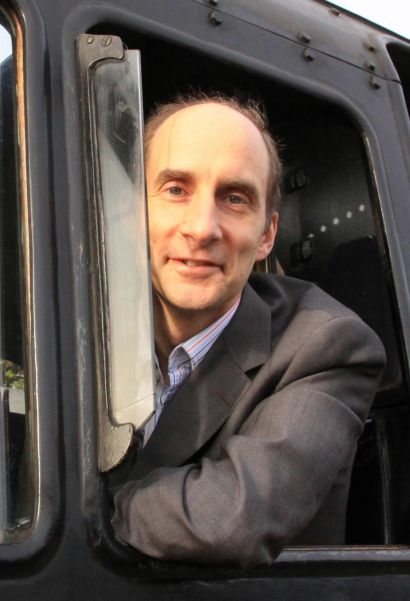CONSTRUCTION of a new high-speed line, HS2, from London to the West Midlands and the North is a matter of ‘how?’ and ‘when? — not ‘if?’ — according to Transport Minister Lord Andrew Adonis.
And he promised that the HS2 team led by Sir David Rowlands would deliver its proposals to the Government by the end of this year and these would be published ahead of next year’s general election. “I hope we will be able to respond with a policy statement, too, before the election,” Lord Adonis added.
He was speaking to the West Midlands Region of the Institution of Civil Engineers (ICE) in Solihull at the headquarters of Arup, the engineering consultancy that proposed and designed the Channel Tunnel Rail Link—now known as High-speed 1—as well as producing plans last year to extend HS1 to a ‘Heathrow Hub’ and provide the start of a new high-speed line to the north, dubbed HS2.
Arup has also suggested a new Grand Central Station in Birmingham, which could include facilities for high-speed trains—although it emerged last week that Birmingham City Council, which never supported the plan for fear it would undermine the case for redevelopment of New Street station, had sold the proposed site at Curzon Street to a property developer for just £11 million.
But Lord Adonis has already announced that the possible need for a new station in central Birmingham is being examined by Sir David Rowland’s HS2 team. “Nothing has been ruled in and nothing has been ruled out,” he said.
“One of the options would be, for the long term, whether an entirely new Birmingham station would be appropriate, and that is one of the things High-speed Two will look at,” he said during a ceremony at London’s Euston station to mark completion of the £9 billion West Coast Route Modernisation project.
When he addressed the ICE in Solihull a few days later, on 21 May, Lord Adonis hinted strongly that the decision to modernise the WCML, rather than build a new high-speed line, had been the wrong one.
The case for building the original high-speed lines in Japan, in the 1960s, and in France, in the 1970s, had been justified by the need to relieve congested conventional rail routes, he said. Both the original Japanese and French high-speed lines are now themselves congested—and in both countries there are plans for new lines to relieve the original new lines.
The case now for building a new high-speed line in Britain from London to the North—with a first stage to the West Midlands—was the need, said Lord Adonis, to relieve the WCML, “the busiest inter-city line in the country and already near saturation even with the recent £9bn upgrade.”
He admitted that Britain’s only high-speed line so far—the 68-mile Channel Tunnel Rail Link—“doesn’t actually connect any of our major cities” and had only been built “because the French shamed us into doing it.”
But Lord Adonis said he was convinced now of the need for HS2. “The issue for us in Britain is not whether we follow suit, but when and how,” he declared.
He said it would be “a bold economic policy for jobs and growth, a bold industrial policy to drive high-tech engineering and innovation, and a bold nation-building policy to promote national unity and help overcome the north-south divide, one of our most debilitating legacies from the past.”
• Earlier, Lord Adonis told the House of Lords that building new high-speed routes could be cheaper than upgrading existing lines and urged cross-party support for HS2, adding: “Of the £8.8bn spent [so far] on the WCML upgrade, more than £500m has gone in compensation payments to train operating companies for not being able to operate services during the long periods of engineering work.”
Links now updated.
High Speed 2 — it’s how and when, not if, says Adonis
22nd May 2009


